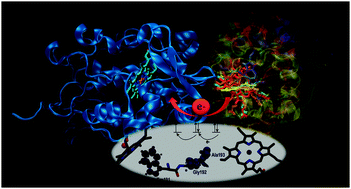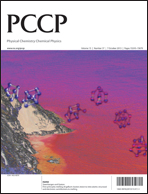Electron transfer in proteins: theory, applications and future perspectives
Abstract
The study of electron transfer (ET) by means of computational techniques has experienced a great development in the last few decades. In particular, understanding the atomic details of its mechanism in complex biological systems is currently possible with a large range of different in silico modelling tools. We review here some theories and representative major contributions to this development. We also underline some of our group's main inputs, focusing on long range and protein–protein electron transfer, and analyse future perspectives. At the end of the article, we emphasize the importance of the basic electron transfer knowledge in the frame of medical and bioengineering applications: mitochondrial therapeutic targets, bioengineering for clean energy, and biosensors.


 Please wait while we load your content...
Please wait while we load your content...